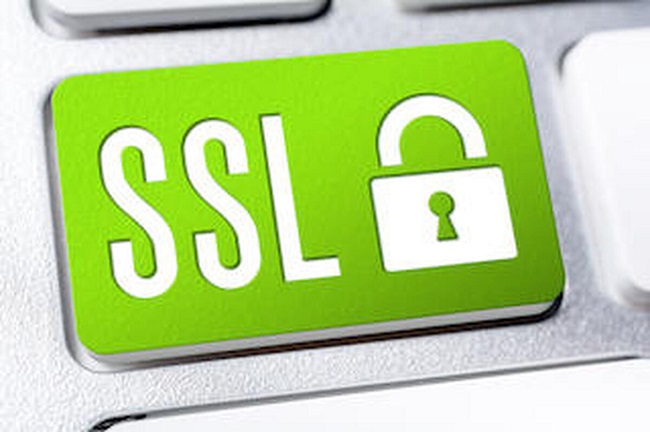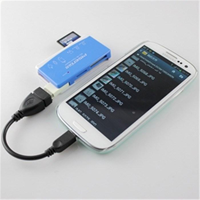Android Data Recovery
If there is one technology that is gaining more and more prominence among enterprises globally, it is the Internet of Things (IoT). After the penetration of smartphones in our everyday lives, the number of connected smart devices is increasing day-by-day. Each of those devices performs several tasks for us, thus automating a big chunk of our daily routine. However, as any technology becomes popular, the concerns around its security also become paramount.
The same is the case with IoT because smart devices can be (and have been) used to penetrate the networks of any enterprise. So, it is natural that companies are concerned about their security. In this article, we will try to find out if the SSL certificates - which serve as a foundation for the security of all modern websites and applications - can do the same thing for IoT devices as well. We will also look at some of the other benefits they offer and some concerns. Let us get started.
Why we need IoT security more than ever
The number of IoT devices is going through a phase of exponential growth. Today there are more connected devices in our homes and offices than we can count, and many times we do not even know about all of them. And that number is only going to increase in the coming days, as new IoT devices are being added to the bouquet of smart devices every single day. According to estimates provided by market research firm Gartner, by the end of 2020, we'll have more than 20 billion IoT devices worldwide. Another study done by Forrester and ForeScout found that 82% of organizations can't identify all IoT devices connected to their network.
Now, when we are always surrounded by devices that are collecting various types of data about us, it becomes important to ensure that the data collected by those devices are not being leaked. Because more devices can provide more opportunities to cybercriminals to collect data and information about us, or attack our systems connected with those devices on the same network, that’s why we need IoT security more than ever in today's environment.
IoT SSL Certificates: The foundation stone for IoT security
By now you understand how important the security of IoT devices is. Now, when it comes to securing these devices, one of the foundation stones is SSL security. Protecting your IoT devices with an SSL certificate adds several game-changing security features to them. Here's some of them:
-Encryption of data: SSL certificates protect your data during transit by encrypting the data packets. So, if their functionality is included in IoT devices, they can protect the data being sent to and from these devices by encrypting the data packets before they are transmitted. So even if someone manages to steal the data packets being sent between your devices, they cannot steal the data concealed in them. That is how IoT SSL certificates ensure the integrity of your data.
-Authentication of devices: In addition to that, they also authenticate the identity of devices communicating with each other. And since IoT devices communicate with each other a lot (often over a LAN), they lack safeguards required for proper devices' authentication. Hackers take advantage of this vulnerability by spoofing the identity of any of the devices to steal data. SSL certificates meant for IoT devices help fix this major security loophole by adding a trusted, unspoofable element to every device’s identity.
So that's how SSL certificates for IoT devices serve as a foundation stone to protect your IoT devices. However, there also are some concerns related to their implementation in these devices. Let us explore them now.
Do IoT SSL Certificates consume too much system resources?
A concern about IoT SSL certificates is that if they are installed on all the IoT devices available in a home/enterprise, they can consume too much processing power and energy. It is a common notion that SSL/TLS implementations can be computationally expensive for IoT devices, many of which rely on microchips with little computing power.
That notion, however, is not completely true. While it may be true for devices that transmit 10kb or less in every transaction, it becomes less and less true as the amount of data being transferred increases. A study done in 2011 by Aalto University of Finland showed that mobile devices' TLS energy overhead for transactions larger than 500 kb was less than the energy required for actual transmission of data. And that was back in 2011 - today's IoT devices transfer more data than the devices of that time, and many lightweight implementations of TLS for IoT devices have also become available in the market. So,it is incorrect to assume that if you buy SSL certificate for your IoT devices, then it can consume too much system resources.
Other benefits of IoT SSL Certificates
Besides offering unique identity and data integrity with help of encryption, IoT SSL certificates also offer some other benefits. They include:
-- Greater flexibility and scalability as IoT SSL certificates can be installed on all types of devices without having to worry about their specific nature.
-- No need for passwords, tokens, and other outdated security mechanisms.
-- Every certificate can be revoked and replaced easily at any point in time, thus giving you complete control over every device in your network.
-- Easier installation and management with help of a certificate management system.
-- Cost-effectiveness, especially as the amount of data being transferred increases.
Conclusion
By now, it should be clear to you that SSL certificates are not only necessary but of utmost importance for any modern smart device. Therefore, you should think about their installation across the network of devices in your company. If you've many devices and it is turning out to be a difficult task, you can hire some IT professionals for the job. But do not defer it, because you never know when a cyberattack will come your way. So, the earlier you buy SSL certificate and install it, the better.






















